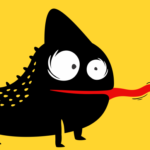Discover the Fascinating Origins of These Funny Last Names
Have you ever come across funny last names that made you do a double-take and wonder, “Did I hear that right?” Well, you’re not alone! Last names, or surnames, have a rich history dating back to medieval times when they were used to distinguish individuals in a neighborhood. Over time, these names evolved, sometimes taking on humorous or unexpected twists that leave us both amused and bewildered.
In this list, we’ve compiled 55 funny last names that you might find hard to believe actually exist. From quirky occupational names to comically descriptive ones, these funny last names have stood the test of time, even if their origins might have been entirely sensible in the past.
Much like the nicknames used in medieval times to set individuals apart, these funny last names often have fascinating stories behind them. Some might have started as occupational labels, while others could have been based on physical attributes or unique family histories. In today’s world, where we encounter funny last names for everything from funny Wi-Fi names to pet dogs with “Funny Dog Names,” these funny last names serve as a reminder of the whimsical and sometimes absurd nature of human history and language evolution. So, get ready to chuckle and scratch your head as we explore 55 funny last names that you won’t believe are real!
1- Assman
The surname “Assman,” alternatively spelled as “Assmann” or “Aßmann,” originates from Germany and is traced back to the fusion of two German words: “Erasmus,” signifying “beloved,” and “mann,” translating to “man” in the German language.
2- Bich
“Bich” is a prevalent Vietnamese last name, and its meaning translates to “blue-green” or “jade” in reference to the beautiful greenish-blue gemstone.
3- Dikshit
The Indian surname “Dikshit,” sometimes spelled as “Dixit,” carries a meaningful connotation in Sanskrit, signifying a “knowledge provider” or someone who imparts wisdom and information.
4- Peanisbreath
“Peanisbreath” is an uncommon and unusual surname found in the United States and Australia.
5- Loser
The surname “Loser” has Saxon origins and can be traced back to the Old English names “Loesar” or “Lesar,” which are ultimately derived from “Lazarus”.
6- Aycock
The surname “Aycock” is of Anglo-Saxon origin and was typically used for individuals who resided in or near a place known as “Heycock” in Berkshire.
7- Balls
Its origins in Middle English, specifically from the word “balle.” This name was often given to individuals who lived in proximity to a rounded hill or geographic feature.
8- Beaver
The English surname “Beaver” has its roots in Old French. It is derived from the combination of “beu,” meaning “fair” or “lovely,” and “voir,” which means “to see.”
9- Berger
The surname “Berger” has its origins in Old French, specifically from the word “bergier,” which means “shepherd.”
10- Bonner
The surname “Bonner” has English, Scottish, and Irish roots and is derived from the Middle English nickname “bonere,” which conveys the meaning of “gentle” or “handsome.”
11- Boob
“Boob” is indeed an Indian surname, and it is among the diverse range of surnames found within the country. Surnames in India can have various origins, including regional, linguistic, or familial associations.
12- Bottom
The surname “Bottom” is of Old English origin, stemming from the word “botm,” which signifies “valley bottom.” This name typically referred to individuals who resided in a wide or broad valley.
13- Butt
The English surname “Butt” or its variation “Butts” originates from the French word “but,” which means “target.”
14- Cobbledick
The surname “Cobbledick” has Anglo-Saxon origins and is associated with families who resided in or near a place called “Cobbledi” in “Lincolnshire”
15- Cock
The medieval nickname “Cock,” derived from “cok,” is associated with the term “cock” or “rooster.” It was used as a descriptive or perhaps even an affectionate nickname in medieval times. Surnames often originated from such nicknames based on personal characteristics or attributes.

16- Cockburn
The surname “Cockburn” is linked to people who hailed from Cockburn, a location in Berwickshire. Its origin can be traced back to Old English, with “cocc” signifying “rooster” and “burna” meaning “stream.”
17- Condom
The surname “Condom” is associated with individuals who originated from the French place called “Condom.” It may also be considered a variant of the name “Condon.” Surnames are often tied to specific geographic locations or have variations in different regions.
18- Cornfoot
The surname “Cornfoot” has Anglo-Saxon origins and is linked to families who resided in or near Cornford in Durham. The surname “Cornfoot” has Anglo-Saxon origins and is linked to families who resided in or near Cornford in Durham.
19- Cummings
“Cummings” or its variation “Cumming” has Norman origins and is found in English, Scottish, and Irish heritage. It carries the meaning of “bent” or “crooked,” which could have been a descriptive or possibly an occupational name in its historical context.”
20- Dick
The name “Dick” is a variant of the given name “Richard,” which has a meaning associated with a “brave ruler” or a “powerful leader.”
21- Dickson
“Dickson” signifies “son of Dick,” with “Dick” typically being a diminutive of the name “Richard.” Surnames like “Dickson” often denote a family’s lineage or ancestral connection.
2- Dork
The surname “Dork” has its origins in the Germanic name “Tederich,” which translates to “powerful people.”
23- Faartz
Faartz conjures openness, prudence, and decisiveness.
24- Fagot
The surname “Fagot” is indeed a real surname, but its meaning is not easily discernible from its spelling or historical origins. Surnames can have varied and sometimes obscure meanings, and in some cases, their original meanings have been lost over time.
25- Fanny
The name “Fanny” has its roots in the Anglo-Saxon culture and was often given to families who lived in close proximity to a marsh or swamp.
26- Fokker
The surname “Fokker” has Dutch origins and indeed means “breeder” in the Dutch language.
27- Fuk
The surname “Fuk” is a Cantonese transliteration of a Chinese surname, and it carries the meaning of “to lean over” or “to fall” in its original Chinese context.
28- Longbottom
“Longbottom” is often associated with individuals who reside in or near a long valley.
29- Schmuck
The German surname “Schmuck” carries the meaning of “jewelry” or “cleanliness.
30- Pusey
The surname “Pusey” has its origins in the Old English word “peose,” which signifies “island.” It was commonly used for families who resided in Pusey, Oxfordshire, which was previously part of Wiltshire.
31- Hardman
The Anglo-Saxon surname “Hardman” is indeed associated with individuals characterized by a tough or resilient nature.
32- Horsedick
It is a name of English origin and can be interpreted as meaning a “brave horse rider.”
33- Medick
“Medick” is an English name that originated as a nickname for a physician or someone involved in medical professions.
34- Weed
“Weed” is derived from the Old English word “wed,” which signifies “fury” or “rage.”
35- Swett
“Swett,” which is a variant of “Svet,” is associated with the meaning “world.”
36- Titball
The surname “Titball” is an American name primarily found in Pennsylvania.
37- Hooker
The surname “Hooker” has Old English origins and is derived from “hoc,” which means “angle” or “hook.” It historically referred to a person who lived near a river bend or a corner of a natural feature.
38- Ramsbottom
“Ramsbottom” is associated with families who hail from the Lancashire town of Ramsbottom in England. Its origin can be traced back to the Old English words “ramm,” which means “wild garlic,” and “bothm,” which signifies “valley bottom.”
39- Everhard
The surname “Everhard” in England is derived from the name “Eberhard,” which is of Germanic origin.
40- Willy
The English surname “Willy,” “Willie,” or “Willey” is typically derived from the given name “William.” “William” has a composite meaning, encompassing elements of “desire” and “helmet.”
41- Kuntz
The surname “Kuntz” is indeed of German origin, and it translates to “brave.”
42- Grossweiner
Grossweiner is a common English surname but can be found in the Americas as well.
43- Licker
The surname “Licker” has North German origins and is a nickname that might have been given to a food enthusiast or someone known for their eating habits. It is derived from the Middle Low German word “licken,” which means “to lick.”
44- Nutter
The surname “Nutter” has multiple possible origins in Old English. It could be derived from “notere,” meaning “clerk,” or “nothard,” which signifies “oxen breeder.”
45- Gotobed
“Gotobed” could indeed have its origins in England and may refer to people who were somewhat unusual in the 12th century for having a bed, perhaps in a context where many people did not have such a luxury.
46- Suparman
“Suparman” is a surname that is indeed popular in Indonesia
47- Tickle
“Tickle” is associated with families who come from the village of Tickhill in South Yorkshire, England.
48- Hyman
The surname “Hyman” is of English origin and is derived from the Old English word “hegham,” which means “enclosed dwelling.”
49- Ho
Ho is a Chinese and Korean surname.
50- Poop
Poop is a popular Taiwanese surname.
51- Pentti
Pentti is a common Finnish last name derived from the name Benedict, which means “blessed” in Latin. The name signifies someone who is fortunate and endowed with blessings. In Finland, Pentti is a traditional name with historical significance, often associated with individuals who possess a calm and composed demeanor, reflecting the serene landscapes of their homeland.
52- Gaywood
Gaywood is an English surname that is likely topographical in origin, combining the elements “gay” and “wood.” The word “gay” originally meant “joyful” or “cheerful” in Old French and Middle English, while “wood” comes from the Old English “wudu,” meaning forest or woodland. Therefore, Gaywood could refer to someone who lived near a pleasant or cheerful forest.
53- Hardick:
Hardick is a surname indicative of strength and resilience. The name is of Anglo-Saxon origin, derived from the Old English elements “hard” (meaning strong or brave) and “wic” (meaning settlement or dwelling). Those bearing this name are often seen as tough and determined, capable of facing and overcoming significant challenges.
54- Seeman
Seeman, also spelled Seaman, is an Anglo-Saxon surname meaning “sailor.” It originates from the Old English words sǣ (sea) and mann (man), indicating a person who works or travels on the sea.
55- Weiner
Weiner is an occupational surname from Germany, historically associated with the trade of a cartwright or wagon maker. The name is a variant of Wagner, which itself comes from the German word Wagen, meaning “wagon.” Individuals with this surname were skilled craftsmen, known for their expertise in building and repairing wagons, an essential trade in historical times.




One Comment